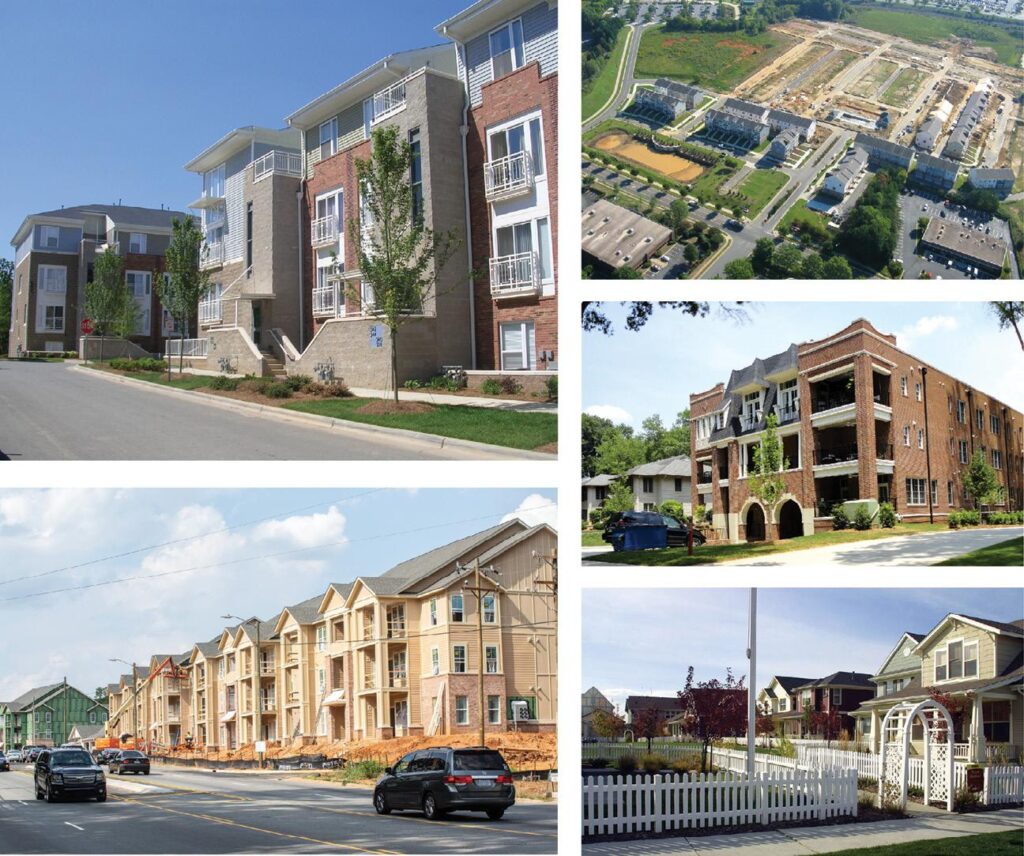Home / 03. Policy Framework / Goal 3: Housing Access for All
Plan Policy
Table of contents
Goal 3: Housing Access for All

Goal 3: Housing Access for All

Charlotte will ensure opportunities for residents of all incomes to access affordable housing through the preservation of naturally occurring affordable and workforce housing and increasing the number of affordable and workforce housing units through new construction.

Objectives
- Increase housing opportunities for households with limited or no vehicle access by increasing the number of affordable rental and deed-restricted housing units, targeting households at 80% AMI or less, within ½ mile of Activity Centers and high performance transit.
- Retain the number of naturally occurring affordable and workforce housing units in the community by managing change within existing neighborhoods.
- Increase the number of affordable and workforce units targeting households at 80% AMI or less within mixed-income developments (e.g. affordable and workforce units mixed with market rate units).
- Reduce the cost burden on households spending more than 45% of household income on housing and transportation.
- Reduce the cost burden on households spending more than 30% of household income on housing.
- Increase the number of homeownership opportunities for low to moderate-income households, especially in areas with low Access to Housing Opportunity scores, as identified by the Equitable Growth Framework.
- Dedicate at least 10% of future housing trust funds to homeownership in areas with low Access to Housing Opportunity scores, as identified by the Equitable Growth Framework.
- Increase housing opportunities and supporting infrastructure and amenities for residents choosing to age in place.
Big Policy Ideas
- Lead the charge to pass enabling legislation for mandatory inclusionary zoning and implement throughout the community.
- Create a robust program of restorative justice targeting homeownership, creation and growth of small business, and equity building for the Black, Indigenous, and People of Color (BIPOC) community, including strategic application of existing tools (e.g. low interest loans, small business assistance, etc.) and development of new tools (e.g. community land trusts, land banks, commercial lease assistance, etc.).
- Encourage higher density, walkable, mixed-use development in and near Activity Centers and transit stations, and allow development bonuses for projects that include benefits to the community (applies to Regional Activity Center, Community Activity Center, Neighborhood Center, and Campus). (cross-reference: Goal 4, Goal 5, Goal 6, Goal 8)
- Support the evolution of existing underserved neighborhoods which are not proximate to services or lack facilities such as sidewalks and street trees, into complete neighborhoods by implementing regulatory changes that encourage desired residential and commercial redevelopment and infill development. Example regulatory changes include allowing the continued use of neighborhood commercial establishments (applies to Neighborhood 1 and Neighborhood 2), permitting small-scale neighborhood commercial and office uses (applies to Neighborhood Center and Neighborhood 2), reducing or eliminating parking requirements, ensuring mobility infrastructure provides adequate space for street trees, and increasing shared parking allowances. (cross-reference: Goal 1, Goal 6, Goal 10)
- Implement complete neighborhood policies that encourage mixes of different types of uses, depending on the development’s context (applies to Neighborhood Center, Neighborhood 1, and Neighborhood 2).
- Support the development of neighborhoods with increased accessibility via multiple transportation modes to a variety of destinations, through regulatory changes such as refinements to block-length and connectivity standards and by permitting neighborhood-supportive commercial development in appropriate locations adjacent to residential neighborhoods.
- Use Community Benefit Agreements or other incentives, to encourage housing developments that include childcare facilities or that provide funding for such facilities.
- Support an increased Housing Trust Bond Allocation to expand programs and develop more units.
- Investigate ways the City and other public agencies can leverage financial resources or debt capacity to support incorporating affordable housing (for rent and/or ownership) into new development projects, such as use of tax increment revenues.
- Continue using publicly owned land (the City, County, Charlotte-Mecklenburg Schools (CMS) etc.) for development of affordable housing, especially in areas with low Opportunity for Housing equity metrics.
- Continue preserving existing naturally occurring affordable housing, focusing on housing located in areas experiencing growth, through the creation and expansion of programs and efforts such as those available through Housing and Neighborhood Services and other community stakeholders.
- Continue to strengthen and expand access to homeownership opportunities for residents.
- Continue investing in improving the quality of existing affordable housing units.
- Increase efforts to make homeowners aware of the Mecklenburg County property tax relief program for elderly homeowners1 and consider working with the County to develop new programs to mitigate the impacts of rising property values on lower-income households, particularly in neighborhoods where housing costs are rapidly appreciating 2.
- Raise awareness of existing City programs supporting homeownership such as the Down Payment Assistance Programs through HouseCharlotte and Community Heroes.
- Coordinate and streamline existing programming that aids homeowners who desire to stay in their homes.
- Support the creation of affordable housing through strategic acquisition, land banking, and use of public land, and through the use of organizations such as community land trusts to purchase vacant land, land going into foreclosure, or land in other forms of receivership.
- Work with regional housing partners to ensure that City goals and policies guide implementation of affordable and workforce housing developments within the City’s planning area.
- Create sustainable homeownership in vulnerable communities through partnerships with banks and other financial agencies.
1source: https://www.mecknc.gov/AssessorsOffice/Pages/Tax-Exclusions-Deferrals.aspx
2source: https://www.dconc.gov/government/departments-f-z/tax-administration/property-tax-relief-programs/property-tax-relief-for-homeowners
Recommended Projects and Programs
- Include provisions similar to the Bonus Menu included in the TOD Zoning Ordinance in some or all new zoning districts associated with Neighborhood 2, Community Activity Center and Regional Activity Center Place Types. A Bonus Menu is a system in a UDO allowing adjustments to development standards if select provisions are provided, typically benefiting the public.
- Develop an affordable housing nexus study to determine the relationship between new development and the demand it creates for affordable housing units.
- Provide regulatory incentives for mixed-income developments.
- Explore new and support existing public-private partnerships to build affordable housing on City-owned land, especially in areas with low transportation costs such as near high-performance transit stations.
- Use the Equitable Growth Framework metrics to evaluate privately initiated rezoning applications and their impact on affordability.
- Create an ombudsman office to support developers of affordable housing and the implementation of benefits to the community from development projects.
- Explore policies and programs to encourage inclusion of childcare facilities in all neighborhood types and Activity Centers.
- Support and expand the existing Housing First model and collective impact approach to providing housing and other support services to unsheltered residents.

Image source: https://www.acluofnorthcarolina.org/en/news/asheville-passed-reparations-rest-north-carolina-should-do-same
Asheville, North Carolina is shifting from business as usual in launching their Resolution Supporting Community Reparations for Black Asheville, through which the City acknowledges systemic racism locally and nationally and how it has affected its Black community members. To make amends for the extensive racial injustice in the community’s history, Asheville is offering its Black community members new opportunities. The resolution directs the City Manager to establish a process to develop short-, medium-, and long-term recommendations to specifically address the creation of generational wealth and to boost economic mobility and opportunity in the Black community. It also states that “the resulting budgetary and programmatic priorities may include but not be limited to increasing minority homeownership and access to other affordable housing, increasing minority business ownership and career opportunities, strategies to grow equity and generational wealth, closing the gaps in health care, education, employment and pay, neighborhood safety and fairness within criminal justice.”

Image source:
https://wallpapercave.com/denver-colorado-wallpapers
https://www.denver80238.com/welcome-home-2-3/
With reasonably priced and accessible housing becoming harder to come by in Denver, Colorado, the strategic document Housing an Inclusive Denver outlines approaches to create and preserve strong and opportunity-rich neighborhoods with diverse housing options that are affordable to all Denver residents. The goal is to create affordable housing in vulnerable areas in addition to areas of opportunity, while preserving affordability and housing quality. In addition, the City has focused on stabilizing areas with the highest risk of involuntary displacement while supporting the homeless population by providing them with a network of temporary and supportive housing options.
The City of Denver’s role includes:
- Coordinating housing investments with the City’s other affordability resources;
- Strengthening the City’s Preservation Ordinance;
- Supporting land-use regulations that incentivize affordable and mixed-use housing;
- Exploring additional forms of tax relief for low and moderate-income households struggling to keep up with rising property taxes; and
- Exploring a rental registry that would require landlords to register their rental properties and participate in regular inspections for health and safety standards.
